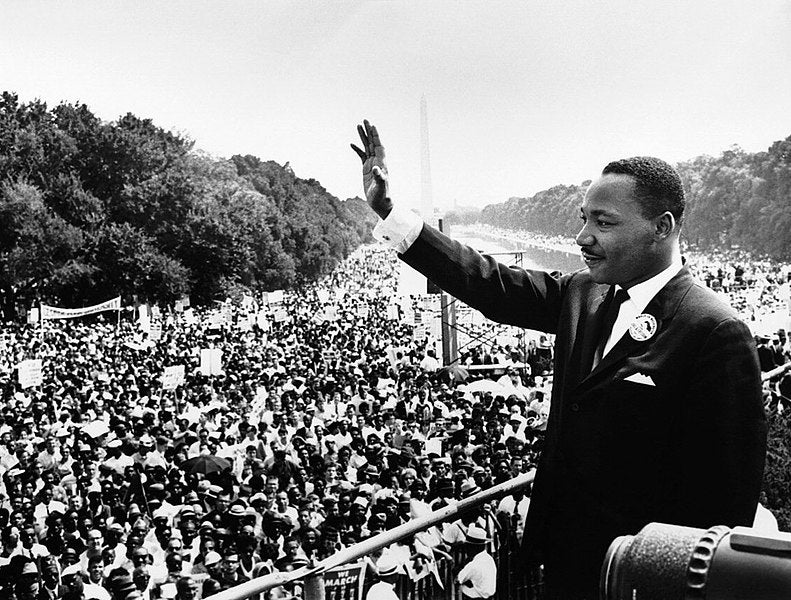Enola Aird is founder and president of Community Healing Network, an organization building a global grassroots movement to help black people overcome and overturn the root causes of the devaluing of black lives. She spoke at the Festival on June 29th on a panel called “A Civil Rights Movement for the 21st Century: Black Lives Matter.”
Below, Aird explains why it’s important to examine the root causes of racism to fully address the issue.
I was born in Panama on a hot September evening in 1953. The nurses, all of them white, were astonished — not by my birth, but by the joy that filled my family when I entered this world. One nurse finally said to another, “Look, they love their children.”
My mom told this story often. It was, for her, a powerful example of the ways in which so many white people did not, in those days, see black people as fully human. Sad to say, what my mother saw then is still true today.
You might have seen the recent report in The Washington Post about how Africans living in India have to cope with being called monkeys, or watching everyone else move when they sit down on a bus, or being beaten to death. In the course of my work, I’ve heard similar stories from Black people living in France, Sweden, and Latin America. In far too many places in the world, we’re not quite considered human.
And of course we witness the same phenomenon in the United States. We see it in the wanton police killings and mistreatment of black men, women, and children. It’s also reflected in the glaring disparities between black and white people in health, education, wealth, employment, income, housing, and more.
This inferior status was assigned to our ancestors centuries ago to justify the enslavement of African people and the exploitation of the African continent. As Martin Luther King, Jr., said “Somebody told a lie one day. They made everything black, ugly, and evil.” This lie, he said, perpetuates a “false sense of superiority” that teaches white children to “adore” themselves, and a “false sense of inferiority” that teaches Black children to “despise” themselves.
It’s because of these twinned lies that, for far too many people in this world, black lives simply do not matter as much as white lives. These lies established a hierarchy of humanity — with white people at the top and black people on the bottom. They objectified, commodified, and dehumanized people of African ancestry.
The Black Lives Matter movement has correctly pointed to this dehumanization as the driving force behind the police killings of black people. But it’s crucial to recognize that the dehumanization of black people is rooted in the lies, and that black lives will never truly matter until these lies are extinguished.
It’s been 150 years since the end of enslavement, and nearly 50 years since the official end of Jim Crow, but the lies are still warping the world’s perceptions of Black people, and our perceptions of ourselves. These lies are the reasons why, in spite of all the constitutional amendments, legislation, and litigation, the black community in the United States and around the world seems to be standing still — and, in some cases, moving backwards.
It is well past time to write a new narrative — one driven not by the lies of white superiority and black inferiority, but by the truth of black humanity. A narrative written not by others, but by black people.
How do we write that new narrative? By attacking the foundations of the old one. We have been trying to combat anti-black racism without confronting its root causes. We can see racism in a movie, or a law, or a political speech, or a killing. But we aren’t looking deep enough.
The culprits are the lies. And black people must be intentional about healing from and overturning them.
We can do the essential work of healing through initiatives such as emotional emancipation circles, evidence-informed support groups to help black people heal from the trauma caused by the lies. We must also re-envision our struggle as one for much more than country-specific “civil” rights. It must be more accurately framed as a global struggle by people of African ancestry to reclaim our dignity and our humanity.
For centuries, Black mothers have been bringing our children into a world that profoundly devalues them. It is well past time for us to end this. It is time for the global black community to move beyond surviving to flourishing.
The opinions expressed in this piece are those of the author and may not necessarily represent the view of the Aspen Institute.

